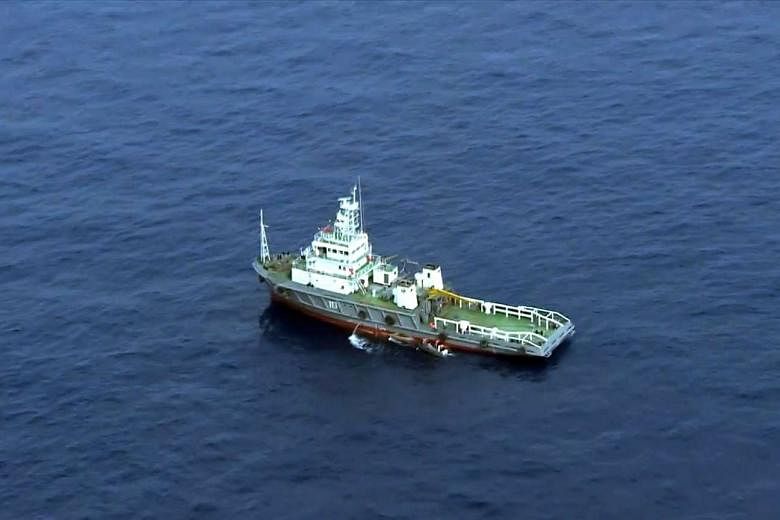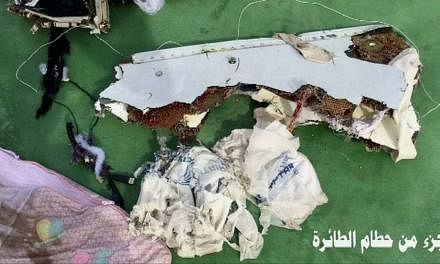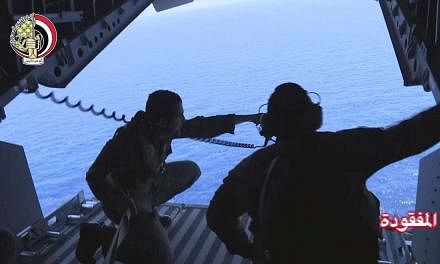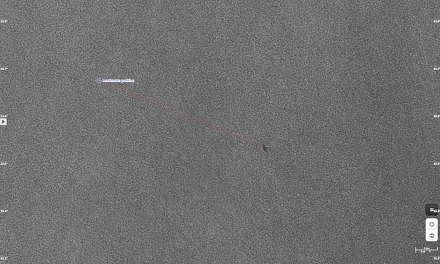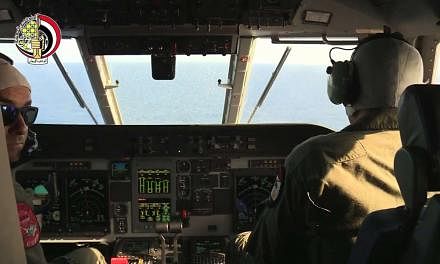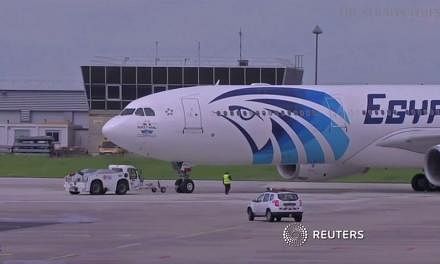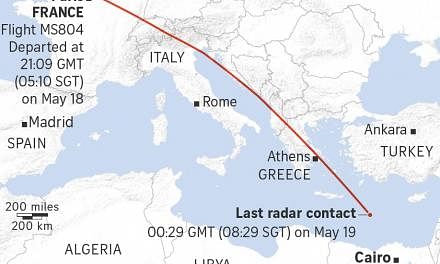CAIRO (Reuters/AFP) - A French naval search vessel has picked up a signal from one of the two black boxes of EgyptAir flight MS804 that crashed into the Mediterranean last month, French investigators confirmed on Wednesday (June 1).
"The signal from a beacon from a flight recorder has been detected" by navy vessel Laplace, said Mr Remi Jouty of France's Bureau of Investigations and Analysis, following an announcement from the Egyptian authorities that the signal had probably been picked up.
The French navy ship Laplace, which started work on Tuesday afternoon, has acoustic detection systems capable of detecting the locator signals given off by black boxes, to aid in searching for the wreckage of the Airbus A320 that went down with 66 people on board on May 19.
"Search equipment aboard French naval vessel Laplace... has detected signals from the seabed of the search area, which likely belong to one of the data boxes," the committee said earlier. It added in its statement that the search for the black boxes was intensifying ahead of the expected arrival within a week of another vessel from Mauritius-based Deep Ocean Search, carrying robots capable of diving up to 3,000m to the seabed to recover the black boxes.
Investigators are in a race against time to find the flight recorders, known as the black boxes, which have enough battery power to emit signals for four or five weeks.
The recordings could help investigators determine the reason for the crash. Two members of France's BEA air safety agency are on board the survey ship.
The crash has strengthened the case for "black boxes" that can pop out of an aircraft before an accident, removing the need for challenging searches on the seabed, Airbus' most senior engineer said on Tuesday.
The EgyptAir jet's flight recorders or "black boxes" are designed to emit acoustic signals for 30 days after a crash, giving search teams fewer than three weeks to spot them in waters up to 3,000m) deep, which is on the edge of their range.
"If we have a deployable recorder it will be much easier to find," Airbus executive vice-president for engineering Charles Champion told a media event. "We have been working on that and this only reinforces our overall approach."
Ejectable or "deployable" recorders would separate from the tail during a crash and float, emitting a distress signal.
Recommended by investigators after an Air France A330 jet crashed in 2009, the idea came to the fore after the disappearance of Malaysia Airlines flight 370 in March 2014.
The United Nations' aviation agency, the International Civil Aviation Organization, has called for key data to be recoverable in a "timely manner" on airplanes delivered after 2021.
But it will be left to airlines and manufacturers to decide how to meet the goal, whether through deployable recorders or other technology such as new homing methods or data streaming.
Deployable recorders have long been used in the military. But some in the industry have expressed doubts about their safe use on civil airliners, saying they could be deployed accidentally and introduce new risks.
Airbus said last year it was talking to regulators about adding deployable devices to its two largest models of jets. US planemaker Boeing is more sceptical, citing instances where they have failed on warplanes. A series of accidents over water including the EgyptAir disaster and wider safety issues are likely to be discussed at a meeting of global airlines in Dublin this week. Teams are racing against the clock to find the
EgyptAir black boxes, partly because rules that would extend the duration and range of their acoustic pingers do not take effect until 2018.
